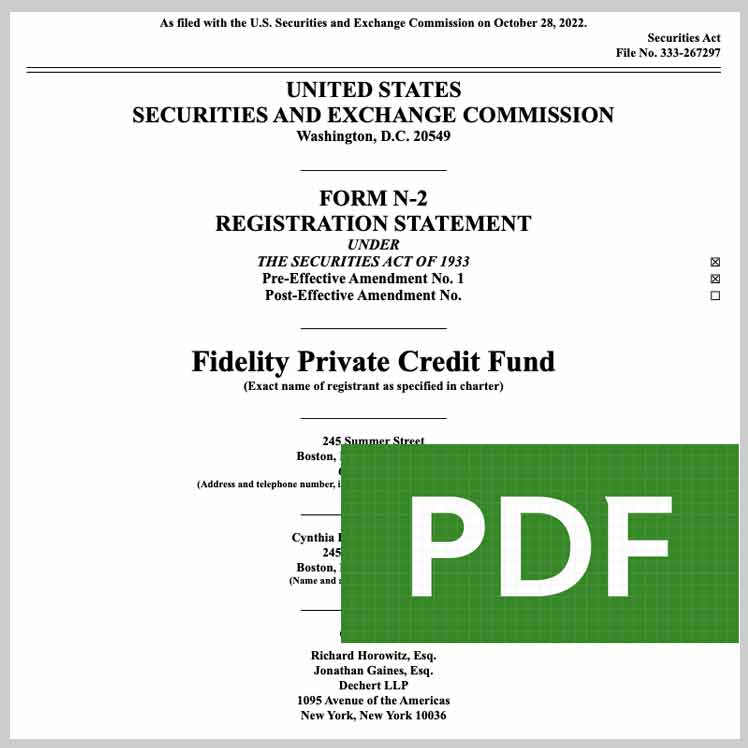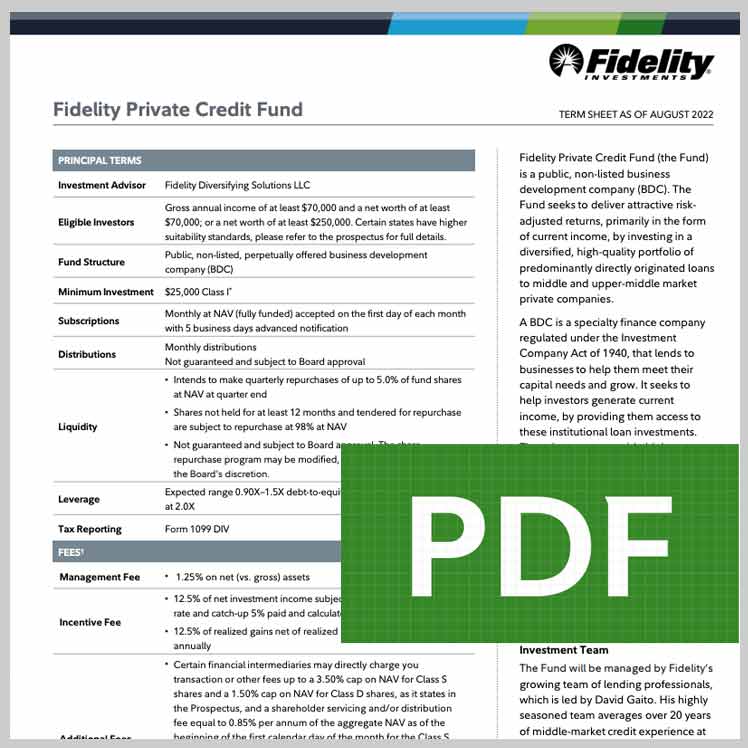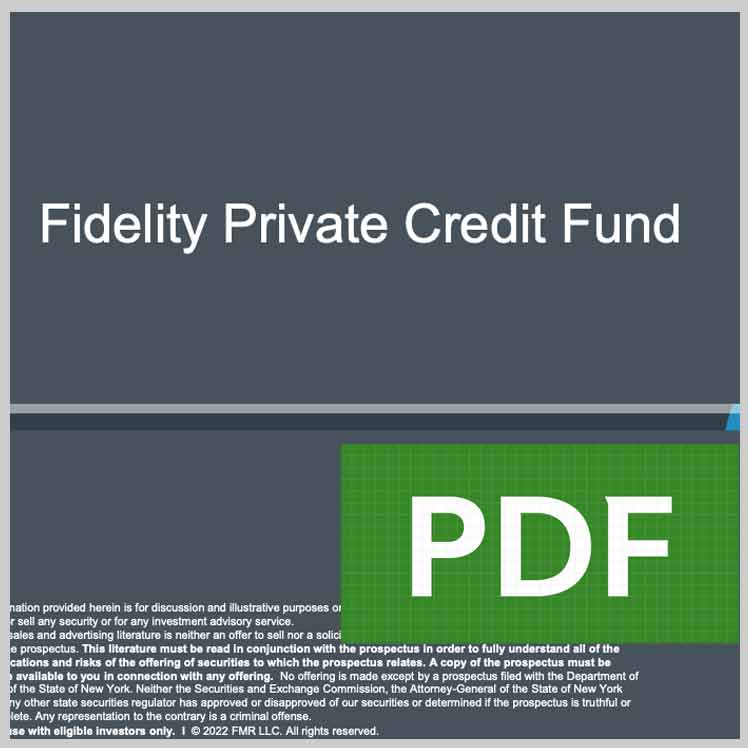Fidelity Private Credit Fund: December 2025 Update
Hear directly from Co-Portfolio Managers Jeffrey Scott and Therese Icuss, as they discuss the Fund, Fidelity's first business development company (BDC).
Your browser doesn’t support video.

PROSPECTUS
Fund details filed with the Securities Exchange Commission (SEC)

TERM SHEET
Fund principle terms, investment parameters, and fees

OVERVIEW PRESENTATION
Learn more about the fund, portfolio managers, and investment process

QUARTERLY REPORT
Fidelity Private Credit Fund Investment Strategy 4th Quarter 2025 Report

FACTSHEET
Fidelity Private Credit Fund December 2025 Factsheet

COMMENTARY
Thoughts on the software reset for private credit
To view the most recent Fidelity Private Credit Fund SEC filings, visit the Electronic Data Gathering, Analysis, and Retrieval system (EDGAR).
Financial Advisors interested in Fidelity Private Credit Fund
If you are an individual investor, please reach out to your Financial Advisor.
Frequently Asked Questions
Risk Factors
Investors should review the offering documents, including the description of risk factors contained in the Fund's Prospectus (the "Prospectus"), prior to making a decision to invest in the securities described herein. The Prospectus will include more complete descriptions of the risks described below as well as additional risks relating to, among other things, conflicts of interest and regulatory and tax matters. Any decision to invest in the securities described herein should be made after reviewing such Prospectus, conducting such investigations as the investor deems necessary and consulting the investor’s own legal, accounting and tax advisors in order to make an independent determination of the suitability and consequences of an investment in the Fund.
- There is no assurance that we will achieve our investment objective.
- An investment in our Common Shares may not be appropriate for all investors and is not designed to be a complete investment program.
- This is a “blind pool” offering and thus you will not have the opportunity to evaluate our investments before we make them.
- You should not expect to be able to sell your shares regardless of how we perform.
- You should consider that you may not have access to the money you invest for an extended period of time.
- We do not intend to list our shares on any securities exchange, and we do not expect a secondary market in our shares to develop.
- Because you may be unable to sell your shares, you will be unable to reduce your exposure in any market downturn.
- We intend to implement a share repurchase program, but only a limited number of shares will be eligible for repurchase and repurchases will be subject to available liquidity and other significant restrictions.
- An investment in our Common Shares is not suitable for you if you need access to the money you invest.
- We cannot guarantee that we will make distributions, and if we do we may fund such distributions from sources other than cash flow from operations, including, without limitation, the sale of assets, borrowings, or return of capital, and we have no limits on the amounts we may pay from such sources.
- Distributions may also be funded in significant part, directly or indirectly, from temporary waivers or expense reimbursements borne by the Adviser or its affiliates, that may be subject to reimbursement to the Adviser or its affiliates. The repayment of any amounts owed to the Adviser or its affiliates will reduce future distributions to which you would otherwise be entitled.
- We expect to use leverage, which will magnify the potential for loss on amounts invested in us.
- We qualify as an “emerging growth company” as defined in the Jumpstart Our Business Startups Act and we cannot be certain if the reduced disclosure requirements applicable to emerging growth companies will make our Common Shares less attractive to investors.
- We intend to invest primarily in securities that are rated below investment grade by rating agencies or that would be rated below investment grade if they were rated. Below investment grade securities, which are often referred to as “junk,” have predominantly speculative characteristics with respect to the issuer’s capacity to pay interest and repay principal. They may also be illiquid and difficult to value.
